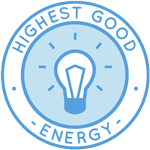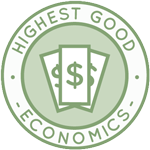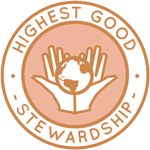Global Highest Good Stewardship – One Community Weekly Progress Update #435
Global Highest Good stewardship is about creating a world that works for everyone. It’s about asking ourselves how we can collectively manage and rejuvenate our planet. It’s about working together to improve life for everyone. One Community is designing open source and free-shared plans to build self-replicating teacher/demonstration hubs that will lead this process.
- Here’s our project overview
- Here’s our world-change methodology
- Here’s how this becomes self-replicating
- Here’s how we are open source and free-sharing all the do-it-yourself designs

OUR MAIN OPEN SOURCE HUBS
Click on each icon to be taken to the corresponding Highest Good hub page.
One Community’s physical location will forward this movement as the first of many self-replicating teacher/demonstration communities, villages, and cities to be built around the world on the basis of Global Highest Good stewardship. This is the July 25th, 2021 edition (#435) of our weekly progress update detailing our team’s development and accomplishments:
Global Highest Good Stewardship
One Community Progress Update #435
DONATE | COLLABORATE | HELP WITH LARGE-SCALE FUNDING
CLICK HERE IF YOU’D LIKE TO RECEIVE AN EMAIL EACH WEEK WHEN WE RELEASE A NEW UPDATE
YOU CAN ALSO JOIN US THROUGH SOCIAL MEDIA
Global Highest Good Stewardship
ONE COMMUNITY WEEKLY UPDATE DETAILS
GLOBAL HIGHEST GOOD STEWARDSHIP – HIGHEST GOOD HOUSING PROGRESS
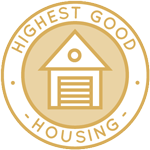 One Community is developing global highest good stewardship through Highest Good housing that is artistic and beautiful, more affordable, more space efficient, lasts longer, DIY buildable, and constructed with healthy and sustainable materials:
One Community is developing global highest good stewardship through Highest Good housing that is artistic and beautiful, more affordable, more space efficient, lasts longer, DIY buildable, and constructed with healthy and sustainable materials:
- Learn about: Our Upcoming Crowdfunding Campaign
- Learn about the different village models: 7 Sustainable Village Models
- Visit the open source portals for the first two: Earthbag Village OS Hub | Straw Bale Village OS Hub
This week the core team continued moving the updated content from the “Earthbag Construction Footers, Foundation, and Flooring” Google Doc to the One Community’s website.
The focus this week was merging the content already published with the new content, editing the images so they are ready for the site, starting to place the images, adding crowdfunding video placeholders, creating and hyperlinking the table of content, and identifying missing information in the tools and materials section. The pictures below share some of this work.
The core team also completed a detailed review of the aircrete compression testing plans and purchased the related materials for the Aircrete and earthbag compression testing.
And the core team continued work on the energy analysis for the solar farm and microgrid designs. We completed the solar energy demands for the Game Room, Library, Gym, and Meeting Room within the Straw Bale Village. See related pictures below.

Global Highest Good Stewardship – Energy Analysis for the Solar Farm and Microgrid Designs
Jose Luis Flores (Mechanical Engineer) completed his 53rd week helping finish the Net-zero Bathroom component of the Earthbag Village. This week Jose Luis began updating the AutoCAD roof plan of the net-zero bathroom. The update included the addition of diagrams for the construction and installation of the flash used to shield the radial beams of the exterior roof.
The added diagrams included details on the flash and fastener positioning. The positions of the fasteners were detailed by illustrating the distances from the flash edges. He updated the rest of the roof plan so the diagrams following this step could coincide with the additional fasteners used to secure the flash.
The following step will be adding these diagrams to the tutorial/instructions of the net-zero bathroom and text that will elaborate the importance and steps for the construction and illustration. The pictures below show some of this work.
Stacey Maillet (Graphic Designer) completed her 45th week working on the final edits and revisions to the Murphy bed instructions. This week Stacey was working on wrapping up all the current comments so that we can resubmit all the instructions for checking.
She thinks we will be able to resubmit the PDF by next week for another look in finer detail at the assembly and checking in 3D. Some of the renders still need to be redone so that they have a more consistent look throughout. Currently some of the graphics are really old and use colors and visuals that look lower quality than the newer renders. Screenshots below are related to this latest progress.
Jeson Hu (Aerospace Engineer) completed his 20th week helping with research related to the solar microgrid design, sizing, and cost analysis specifics. This week, Jeson added a description paragraph to the perovskite solar cell section before the advantages and disadvantages.
He also added a solar panel hardware comparison table and a table description in the cost analysis section to give a better understanding of product specs and costs. He rephrased and rewrote the master conclusion, cleared up confusion in the solar inverter summary, and added the inverter comparison tables to the summary.
In addition, Jeson added a total solar hardware cost table and description to the master conclusion. He also added more diesel generators to the diesel generator research table and added product specs, contacts, and linked the resources. The pictures below share some of this developing work.
Daniela Andrea Parada (Civil Engineering Student) completed her 14th week helping with the Sustainable Roadways, Walkways, and Landscaping tutorial development. This week Daniela made edits to the Earthbag Village road. Using AutoCAD, she widened the street and pushed back the village domes.
In doing so, more space was created. New designs were then proposed so that more domes can be included. She then removed the duplicate sources on the Roadway, Walkways, Gutters, and Parking Lot Report.
During this time Daniela found two extra resources that had been incorporated so she uploaded them to the Dropbox and formatted them within the resources section. Once completed Daniela added easements to the AutoCAD file she had previously been working with.
Although there were some difficulties scaling the new satellite image for the easement, she was able to measure the correct length of the paths. Lastly Daniela created a CAD for the parking lot design. Pictures of some of this work are below.
Katherine Cao (Chemical Engineer) also completed her 9th week working on the grid-tie connection details for our solar microgrid designs. This week Katherine made corrections on the Grid-tie system report according to the core team and other reviewer’s feedback.
Katherine also updated the table of contents and references, and formatted all the tables. Pictures below are related to this work.
Prabhath Ekanayake (Electrical Engineering Assistant) completed his 7th week working on the grid-tie connection details for our solar microgrid designs. This week Prabhath continued development of the grid-tie tutorial by updating all his past content based on feedback from the core team and other reviewers. Below are some images related to this work.

Global Highest Good Stewardship – Solar microgrid designs
Shreyas Dayanand (Battery Research Engineer) also completed his 4th week helping with the solar microgrid design specifics related to electric vehicles and battery sizing. This week, Shreyas worked on building a techno-economical model for analyzing and optimizing the charging time and period for electric vehicles within the community.
He started off by installation, setup and learning the software – HOMER GRID. He also applied the basic settings and combinations of the previously researched data into the analysis that was carried out. Pictures below relate to this work-in-progress.
Jarot Tamba (Civil Engineering Intern) completed his 3rd week helping with the Aircrete and earthbag compression testing. This week Jarot’s focus was on performing precise calculations for the standard concrete and aircrete mixes. In the beginning of the week the group spent time transferring soil for their stabilized earth mixes.
They also performed initial tests for aircrete and concrete. The tests were not successful. The concrete slump was excessive and the aircrete shrank too much. In order to get accurate proportions the group decided to do another week of testing. Pictures below relate to this work.
Dominick Banuelos (Civil Engineering Intern) also completed his 3rd week helping with the Aircrete and earthbag compression testing. This week Dominick worked with the team to create the first test cylinders filled with aircrete and standard concrete.
Through the process of working on calculations, doing a sieve test, and slump test, the first cylinders were created. After having these poured and sitting for 48 hours, some issues were noted and will be properly fixed to ensure the best product.
The cylinders were then put into the compression testing at the end of the week to see what the psi strength of the concrete was. The numbers were a bit low so Dominick will work the following week to achieve a greater psi that can withstand the required strength. Below are some images related to this work.
John Paul D. Matining (Civil Engineer Intern) completed his 3rd week helping with the Aircrete and earthbag compression testing too. This week John and his team’s main focus was on initial week testing of standard concrete and aircrete. The bulk share of the time was on testing the ratios which were calculated beforehand and tweaking them.
One problem that arose is most of the ratios for the aircrete were based on a full batch of aircrete so calculating and finding the right amount of aircrete for one cylinder took a bit of time to accomplish and will need to be rechecked before full test is to be done.
Lastly, other tests that were accomplished included the slump test for the right amount of water, the clay sand test to find percentage of clay in soil mix, and the sieve test to find out distribution of the aggregates. The pictures below relate to this work.
And Marcus Nguyen (Civil Engineering Intern), also part of the Aircrete and earthbag compression testing team, completed his 3rd week as well. This week Marcus and his group did initial testing for the Aircrete and Stabilized Earth Project. During the test, Marcus figured out what materials and equipment was needed for the actual testing procedure.
He also learned how to use a slow-motion camera to prepare video recording when doing the compression testing. The group was also able to revise their calculations for the testing proportions and determined the best route for testing. Throughout the week there were results that were not acceptable and will be fixed this week.
To better understand how to work and use the equipment a test of the compression testing equipment was used as well. The pictures below share some of this developing work.
Lastly, Tiffany Gao (Sustainability/Plastics Researcher) joined the team and completed her 1st week as a researcher, reviewer, and web developer. This week Tiffany settled into her new experience working.
She spent her initial hours going through the orientation/onboarding, figuring out how to work with WordPress, and reading through One Community’s articles to familiarize herself with the format.
Tiffany then quickly picked up her work by starting with her first task: editing the”Best Small and Large-scale Plastic Recycling, Reuse, and Repurposing Community Options ” article. After spending an abundance of time carefully combing through word choice, grammar, and spelling, she compiled a Google Document containing all her personal comments, questions, notes, etc. to improve the article.
Tiffany also began researching and looking into the non-recyclables article. The pictures below share some of this developing work.
GLOBAL HIGHEST GOOD STEWARDSHIP – DUPLICABLE CITY CENTER PROGRESS
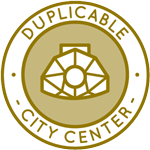 One Community is developing global highest good stewardship through a Duplicable and Sustainable City Center that is LEED Platinum certified/Sustainable, can feed 200 people at a time, provide laundry for over 300 people, is beautiful, spacious, and saves resources, money, and space:
One Community is developing global highest good stewardship through a Duplicable and Sustainable City Center that is LEED Platinum certified/Sustainable, can feed 200 people at a time, provide laundry for over 300 people, is beautiful, spacious, and saves resources, money, and space:
- Learn about this building and it’s function: Duplicable City Center Open Source Hub
This week the core team continued review and feedback on the Sustainable Roadways, Walkways, and Landscaping tutorial. We cleaned up the Roadways doc by deleting all addressed comments and had a phone conversation with the civil engineer in charge of that doc.
We then reviewed the “Choosing the Best Solar Hardware Research & Report” doc dealing with solar hardware components, solar panel types, recyclability of components, etc. This doc is completed as much as possible until the creators make final additions.
Ian Oliver Malinay (Energy Modeler/Analyst) completed his 28th week helping run the energy analysis calculations to help us achieve LEED Platinum status for the Duplicable City Center.
This week, Ian processed the energy modeling narrative documents for LEED. He continued the whole building energy simulation process documents as reference for the Duplicable City Center project.
As of today, he is almost done with the energy process guide for the proposed design building and is waiting for other inputs to be completed, particularly HVAC and service hot water design. Process guide for the baseline building design will be provided after he completes the proposed building simulation process guide. Please see below progress photos for reference.
David Na (Project Management Adviser/Engineer) completed his 21st week helping with input and management of the Parking Lot and Sustainable Roadways, Walkways, and Landscaping tutorial development, as well as the City Center Water Catchment Designs.
David started the week by sending out the weekly action items to his team. He then went on a phone call with a core team member to discuss all comments and questions remaining on the google doc. David also spent some time making revisions on the google doc that haven’t been changed.
He also spent time working on a list of action items left for next week for his team. With the remaining time that he had left, David researched and read through some of the SF Greywater Manual to prepare for his next project with a different core team member. Pictures below are related to this work.
Carol Nguyen (Civil Engineer) also completed her 13th week helping with the Sustainable Roadways, Walkways, and Landscaping tutorial development. Carol worked on the 3 main pavements comparison table/Google Spreadsheet comparing flexible asphalt, rigid concrete, and composite.
She also worked on the roadway initial and annual maintenance costs tables, putting in the equations to calculate linear ft, square feet and cubic feet costs for 3 types of roads. Carol also removed the pre-edit version in the table on spreadsheets, added the references, and incorporated the CAD drawings to the respective sections in the report.
She added details into the introduction of the bikeway design as well. The pictures below share some of this developing work.
Neel Shanbhag (Control Systems Electrical Engineer) completed his 7th week helping with the Duplicable City Center Electrical designs. This week Neel worked on power and energy needs for the various zones in the Duplicable City Center. Pictures related to this work are below.
John Aquino (Electrical Engineer) also completed his 4th week helping lead the Duplicable City Center Electrical designs. This week, John has set up the RCP drawings for each floor containing light fixtures, and added the RCP xref files to the Electrical Dropbox folder.
In addition, a sample lighting sheet was developed for reference; named as E201 and is now in the Drawings subfolder under the main Electrical folder. Next steps will be to develop an excel spreadsheet highlighting sheet numbers/names, as well as drafting a sample electrical details sheet typical for the scope of work. Pictures below show some of this work.
Venus Abdollahi (Architectural Designer) completed her 3rd week helping finish the Duplicable City Center roof designs. This week Venus created the 3D isometric section of the City Center Living Dome roof. For detailing the roof, she’s using Revit to create details and callouts.
She also added different layers and started to annotate them and create callouts. The isometric section is still in process and she will be adding the gutters for the Living Dome. See pictures below.
And Carlos Lillo (Engineering Technician) completed his 2nd week helping with the pallet furniture designs for the Duplicable City Center guest rooms. This week Carlos continued developing his skills in Blender. He improved some models and produced several render pictures and animations.
At first Carlos encountered problems like “noisy” pics or pixelated animations but after testing formats and filters he overcame these challenges and created higher quality render pics and perfect fluid animations.
Given the time it takes to produce a render Carlos decided to shorten the time of the videos, fortunately they can be edited in any video edition program to extend their times. Pictures below are related to this work.

Global Highest Good Stewardship – Pallet furniture designs for the Duplicable City Center guest rooms
Dipanshi Batra (Mechanical Engineer) also joined the team and completed her 1st week working on the Duplicable City Center connectors will use to build the domes.
This week, Dipanshi successfully finished her onboarding checklist and read up on One Community’s entire project to gain a better understanding of the task at hand. She moved on to reading and understanding past research to make better notes. This was followed by the formation of a new document, where all new work will be documented.
A work flow was established and Dipanshi then came up with a format for the rest of the work and began research specific to the hub connector designs. Pictures of some of this work are below.
GLOBAL HIGHEST GOOD STEWARDSHIP – HIGHEST GOOD FOOD PROGRESS
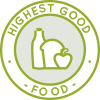 One Community is developing global highest good stewardship through Highest Good food that is more diverse, more nutritious, locally grown and sustainable, and part of our open source botanical garden model to support and share bio-diversity:
One Community is developing global highest good stewardship through Highest Good food that is more diverse, more nutritious, locally grown and sustainable, and part of our open source botanical garden model to support and share bio-diversity:
- Learn about the structures: Hoop House Hub | Aquapini & Walipini Open Source Hub
- See what we’ll be growing: Gardens & Hoop Houses | Large-scale Structures | Food Forest | TA
This week the core team continued creating updated SketchUp models for the final designs of the Aquapinis/Walipinis. We updated the waterfall design by removing the recycled tire and viewing window.
We also redesigned the walking path and placed stepping stones on some of them, made changes to the area closest to the entrance door, removed the waterfall and placed a dead tree sculpture with vegetation around it, began working on a second green island area in the middle, and designed raised beds with grape vines, vegetables and decorative plants. Pictures below are related to this work.

Global Highest Good Stewardship – Aquapinis:Walipinis
This week Qiuheng Xu (Landscape Designer) completed her 42nd week volunteering now helping with the Aquapini & Walipini external landscaping details. This week Qiuheng focused on updating the structures and their surrounding area topography to meet the edge of the structures. She also modified the central terrace to match the 3D reference. Below are some pictures from this work.

Global Highest Good Stewardship – Aquapini & Walipini external landscaping details
Qisheng Rong (Mechanical Engineer) completed his 2nd week helping with the development of the climate batteries for the Aquapini/Walipini structures. This week Qisheng continued to read chapter 28 of the Ashrae handbook in regard to the CLTD/SCL/CLF method to calculate cooling and heating load.
He also searched for more architectural data for wall materials code in order to do the calculations properly. Qisheng additionally read and ran the MATLAB code written by previous volunteers to get informed of the configurations and dimensions used in the project. The pictures below are related to this work.

Global Highest Good Stewardship – Aquapini & Walipini external landscaping details
GLOBAL HIGHEST GOOD STEWARDSHIP – HIGHEST GOOD EDUCATION PROGRESS
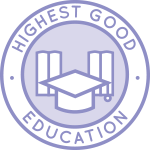 One Community is developing global highest good stewardship through Highest Good education that is for all ages, applicable in any environment, adaptable to individual needs, far exceeds traditional education standards, and more fun for both the teachers and the students.
One Community is developing global highest good stewardship through Highest Good education that is for all ages, applicable in any environment, adaptable to individual needs, far exceeds traditional education standards, and more fun for both the teachers and the students.
This component of One Community is about 95% complete with only the Open Source School Licensing and Ultimate Classroom construction and assembly details remaining to be finished. We’ll report on the final two elements to be finished as we develop them.
With over 8 years of work invested in the process, the sections below are all complete until we move onto the property and continue the development and open sourcing process with teachers and students – a development process that is built directly into the structure of the education program and everything else we’re creating too:
- Program Overview: Education Open Source Hub
- How the components work together: How to use the Education for Life Program
- Lesson Plans for Life – Lesson Plans How-to
- Foundations of Outstanding Leaders, Teachers, and Communicators
- Curriculum for Life
- Teaching Strategies for Life
- Learning Tools and Toys for Life
- Evaluation and Evolution
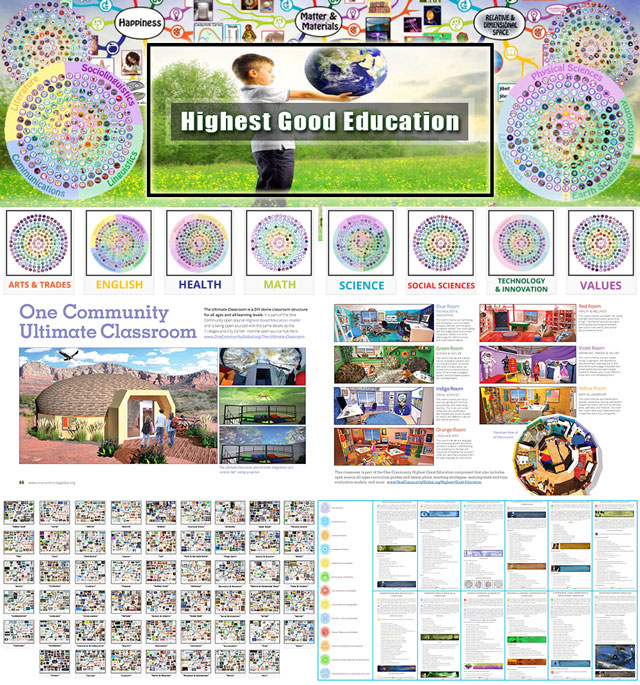
Highest Good Education: All Subjects | All Learning Levels | Any Age – Click image for open source hub
GLOBAL HIGHEST GOOD STEWARDSHIP – HIGHEST GOOD SOCIETY PROGRESS
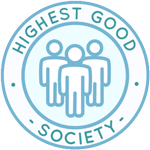 One Community is developing global highest good stewardship through a Highest Good society approach to living that is founded on fulfilled living, the study of meeting human needs, Community, and making a difference in the world:
One Community is developing global highest good stewardship through a Highest Good society approach to living that is founded on fulfilled living, the study of meeting human needs, Community, and making a difference in the world:
- Read the Highest Good society overview: Highest Good Society
- Learn about the model for fulfilled living and sharing: A Day in the Life
- Learn about the 4 economic models: RBE | For-profit | Non-profit | Entrepreneurship
- Learn about our open source community collaboration and management software: The Highest Good Network
This week the core team completed 19 hours managing One Community emails, social media accounts, interviewing potential new volunteer team members, and managing volunteer-work review and collaboration towards not mentioned elsewhere here.
The picture below relates to this. We also did more testing and bug identification within the Beta version of the Highest Good Network software.

Global Highest Good Stewardship – Bug identification within the Beta version of the HGN software
Chris Weilacker (Software Engineer) completed his 32nd week working on the Highest Good Network software. This week Chris worked on the Badge Report including the ability to download a PDF report of persons selected/featured badges or a report of all badges that a user has earned.
Chris also worked with Patrick on setting up the Edit Button for Badge Management and Patrick is now working using some of Chris’s code as a base to add type’s and the different data needed to make a Badge get auto assigned. Pictures below are related to this work.

Global Highest Good Stewardship – Highest Good Network software
Yueru Zhao (Software Engineer) completed her 22nd week working on the Highest Good Network software. This week Yueru was working on trying to make the “edit task” function work in the people reporting page. Unfortunately, after spending several hours, she did not figure it out.
Yueru also did research on the UI change so the resources button will change to a head down arrow when clicking. She plans to spend more time to really make it work. Apart from that, Yueru worked on the selected options UI on the project reporting page. The pictures below are related to this work.

Global Highest Good Stewardship – Highest Good Network software
OJ Alcaraz (Software Engineer) also completed his 4th week working on the Highest Good Network software. This week OJ reviewed pull requests for both the front end and the back end of the HGN app.
He also created a Google Form questionnaire which includes questions for the stakeholder to provide feedback of their experience of the new badge functionality. OJ also tested the inventory back end further and the updated functionality for the front end. The pictures below relate to this work.

Global Highest Good Stewardship – Highest Good Network software
AND WE PRODUCED THIS WEEKLY UPDATES BLOG – CLICK HERE TO SUBSCRIBE
FOLLOW ONE COMMUNITY’S PROGRESS (click icons for our pages)
INVESTOR PAGES
GET INVOLVED
DONATE | WAYS ANYONE CAN HELP | MEMBERSHIP
CLICK HERE FOR ALL PAST UPDATES
 One Community
One Community